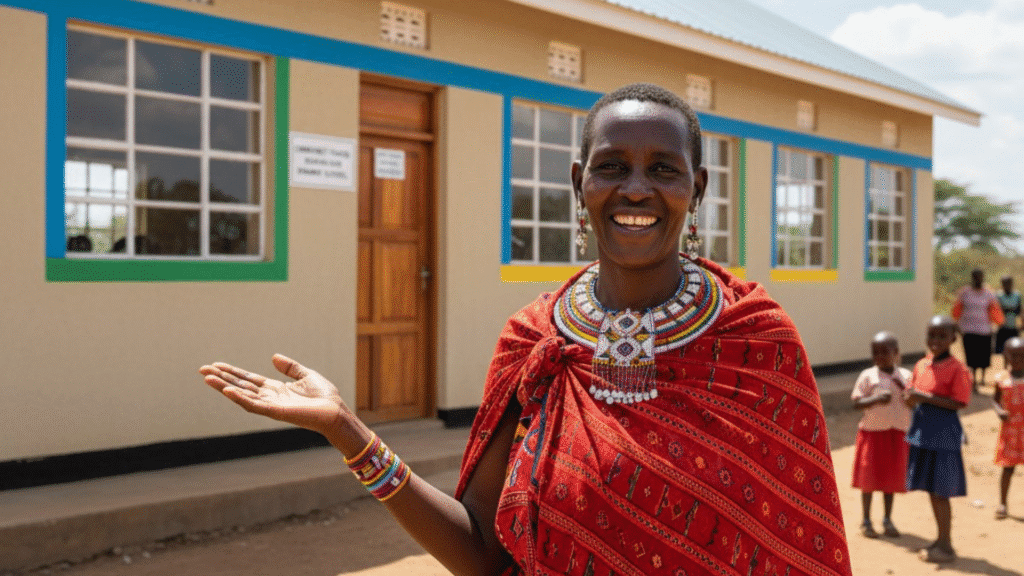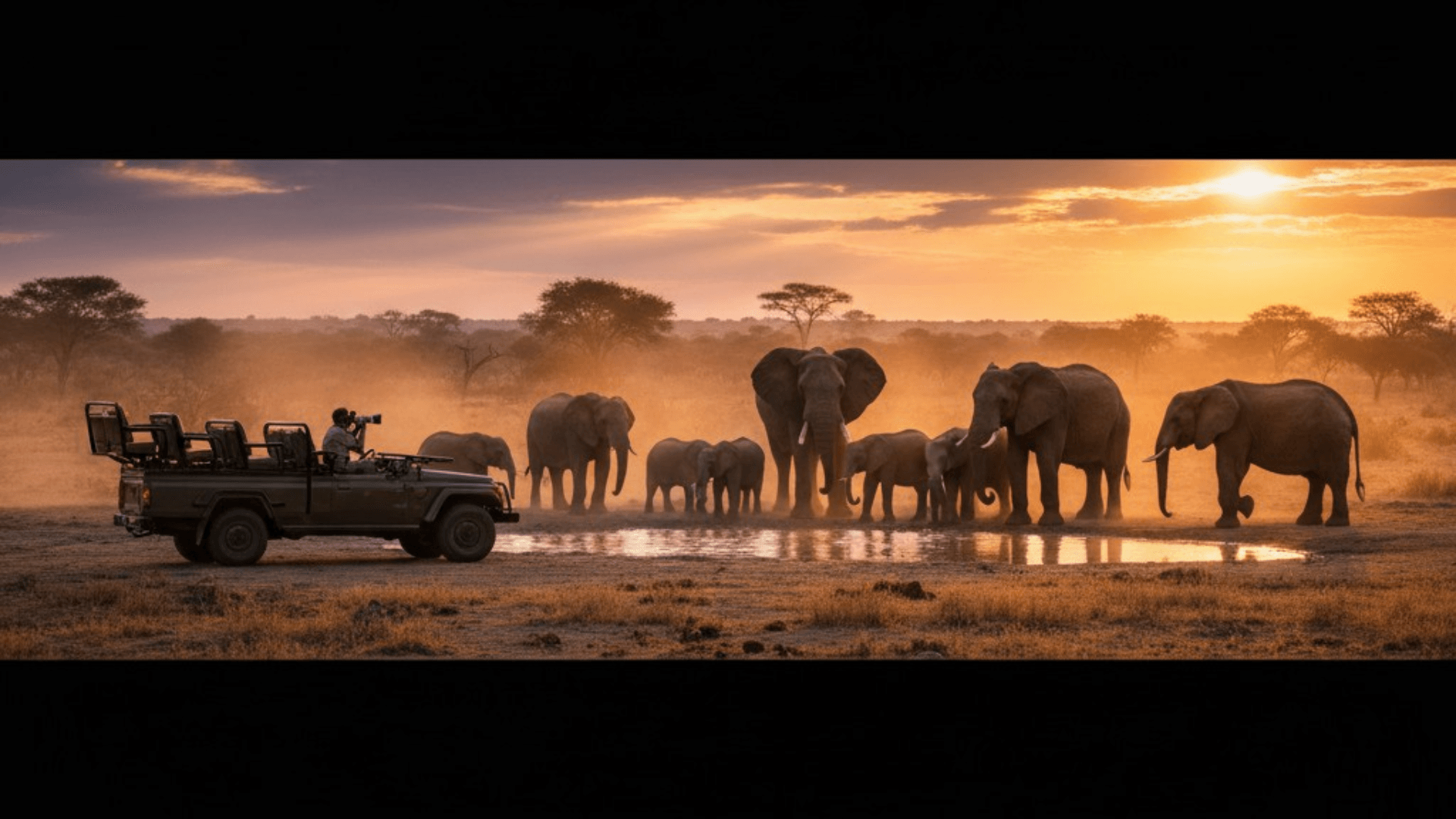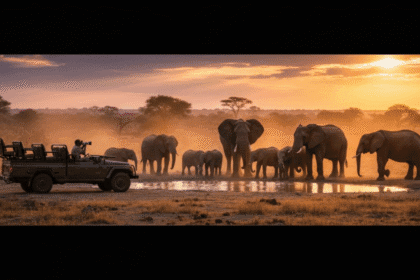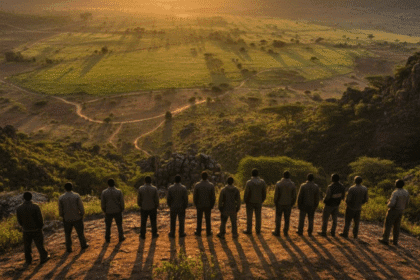Wilderness & Wealth: Africa’s New Travel Model
By Brian Ochieng Akoko, Reporter | Nakuru City – Kenya.
The face of African travel is changing. It is moving beyond traditional safaris. A new era has dawned. It is defined by sustainability and community benefit. Ecotourism is leading this transformation.
It is the fastest-growing sector of African travel. In 2025, destinations are seeing a notable surge. This is in visitors looking for ethical experiences. These travelers want to contribute positively.
They seek conservation, culture, and deep engagement. This „Great Green Shift“ is more than a trend. It is a fundamental economic realignment. It prioritizes the well-being of local communities.
It also ensures the survival of Africa’s natural heritage. The economic implications are massive. Ecotourism revenue is directly funding social services. It is building schools. It is funding healthcare centers.
It is creating sustainable livelihoods. This shift is a powerful engine for development. It is proving that conservation can pay its own way.
A High-Value Blueprint
Rwanda stands as a powerful example. It is the undisputed leader in high-value ecotourism. The focus is on the mountain gorillas. This iconic species is the heart of their strategy. Rwanda charges a premium for gorilla tracking permits.
This policy is highly effective. The high cost limits visitor numbers. This reduces the ecological footprint dramatically. It also ensures substantial revenue generation. This revenue is reinvested into conservation and communities.
A significant portion of the permit fee goes directly to local residents. This creates a powerful incentive. This incentive links a community’s prosperity to the gorillas’ survival. The people become the ultimate protectors.
The infrastructure supporting this is world-class. It includes luxury, eco-friendly lodges. These lodges employ local staff. They source materials and produce locally. This model is being studied across the continent.
Nations are seeking to replicate its success. It shows that African countries can dictate the terms of their tourism. They do not have to rely on mass market models. Rwanda’s commitment to sustainability is total.
It is a national priority. This blueprint proves that ethical tourism is also profitable tourism. It is a win-win scenario.
Expanding the Ecotourism Map
The success of Rwanda is inspiring expansion. New ecotourism hotspots are emerging. Tanzania, already a safari powerhouse, is deepening its commitment. It is moving towards more responsible practices.
New protected areas are being established. These areas focus on preserving biodiversity corridors. The focus is on less-visited, remote wildernesses. This spreads the economic benefit more widely.
Kenya is also investing heavily. It is supporting community conservancies alongside its national parks. These conservancies are managed by local tribes. They share in the revenue generated. This decentralized approach empowers indigenous groups.
It respects their traditional land management knowledge. In places like Ethiopia, the focus is on cultural heritage ecotourism. This is alongside wildlife viewing.
Ethiopia offers ancient churches and historic sites. These are paired with unique endemic species. This diversification attracts a broader range of travelers. It makes the continent a year-round destination.
The development of these sites is careful. It respects the local cultural context. It ensures that the stories told are authentic. They are narrated by the community members themselves.
Infrastructure and the Tech Integration
The growth of ecotourism requires smart infrastructure. This is not just about roads and airports. It involves solar-powered lodges and rainwater harvesting systems. It is about minimizing environmental impact.
The use of technology is becoming central. Apps help tourists track their carbon footprint. Digital platforms connect tourists directly to local guides and community enterprises. This cuts out exploitative middlemen.
Booking systems prioritize sustainability. They favor operators with proven environmental records. AI and drone technology are being used for conservation monitoring. This increases efficiency. Drones monitor poaching activity in vast, remote areas.
AI analyzes wildlife population trends. This technology makes conservation more effective. It also enhances the visitor’s experience. Tourists can witness these modern conservation techniques firsthand.
It adds educational value to the trip. This integration of tech and nature is a defining feature of African ecotourism in 2025. It is forward-looking and efficient.
The Critical Role of Community Buy-In

The foundation of successful ecotourism is community involvement. Without it, the model fails. Conservation efforts are only sustainable if they improve local livelihoods. They must offer tangible benefits.
Ecotourism provides employment opportunities. These include guides, lodge staff, artisans, and trackers. It generates revenue for community funds. These funds are used for local priorities like water projects.
When people benefit directly, poaching declines. Habitat destruction is reduced. The local population becomes the primary defense force for the wildlife. This is the most effective form of protection.
Workshops and training are essential. They equip local people with hospitality and business skills. Entrepreneurship is being encouraged. Small businesses are supported to cater to the tourist market.
This economic empowerment creates resilience. It protects communities against other economic shocks. The shift is from a ‘fortress conservation’ model. It is moving towards a ‘community inclusion’ model.
This represents a major philosophical change in African conservation. It puts people at the center of the solution. The success of ecotourism is directly measurable. It is seen in rising incomes and improving local infrastructure.
Ecotourism as a Geopolitical Stabilizer
In a region often marked by tension, ecotourism offers stability. It is an economic peace dividend. Shared natural resources, like transboundary parks, become areas of cooperation. This encourages dialogue.
Countries realize they share a vested interest. They must protect the ecosystem together. This shared interest transcends political disagreements. It builds soft diplomacy channels.
For countries seeking stable economic growth, ecotourism is a safe bet. It is less volatile than commodity markets. It relies on a renewable resource: the natural beauty of the continent. The sector attracts foreign direct investment (FDI).
This investment is aligned with sustainable goals. This helps African nations achieve their Sustainable Development Goals (SDGs). It provides a green path to prosperity. Ecotourism is a powerful narrative tool.
It shows the world a vibrant, progressive, and beautiful Africa. It counters negative narratives of conflict and crisis. It highlights the continent’s immense potential. This shift is empowering Africa to tell its own story. It is a story of hope, resilience, and growth.
Challenges and the Future
Despite the optimism, challenges remain. These include climate change impacts and infrastructure gaps. Climate change threatens fragile ecosystems. Droughts impact wildlife populations. African nations must continue to invest in climate adaptation.
This protects the core product of ecotourism. The industry must also remain vigilant against ‘greenwashing’. Claims of sustainability must be genuine. Certification bodies are becoming stricter.
They ensure that operators adhere to high ethical standards. The future of African ecotourism looks bright. It is positioned for continued strong growth. The focus will remain on authenticity and ethics.
These are the core values that attract the modern traveler. The ultimate goal is a fully indigenous ecotourism industry. It will be owned, managed, and staffed by Africans.
This complete control ensures that the maximum benefit stays on the continent. It drives true, equitable development. The Great Green Shift is gathering pace. It is a powerful example of sustainable, Africa-led progress.
The continent is leveraging its greatest assets. It is using its wildlife and cultural richness for collective good. This is a journey towards a better, greener, and more prosperous future for all.





Daj svoj stav!
Još nema komentara. Napiši prvi.